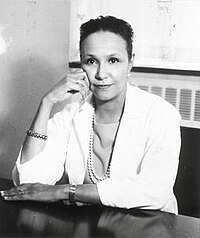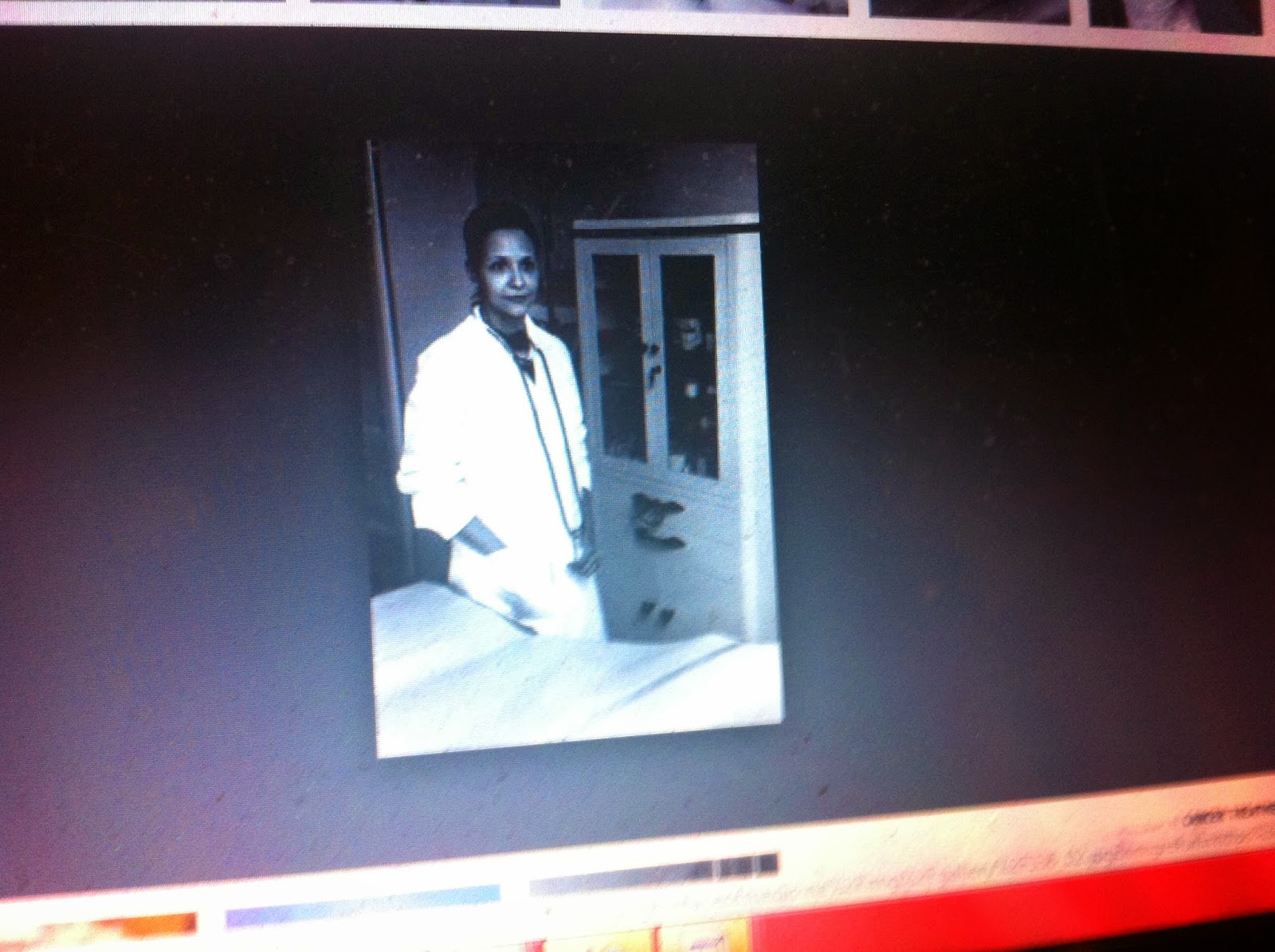BLACK SOCIAL HISTORY
Jane C. Wright
| Jane C. Wright | |
|---|---|
 | |
| Born | November 30, 1919 Manhattan, NY, USA |
| Died | February 19, 2013 (aged 93) Guttenberg, NJ, USA |
| Residence | United States |
| Nationality | American |
| Fields | Oncology |
| Institutions | Harlem Hospital Cancer Research Center New York University New York Medical College |
| Alma mater | Smith College New York Medical College |
| Known for | Development of chemotherapies; Co-founder of the American Society of Clinical Oncology |
Jane Cooke Wright (also known as "Jane Jones") (November 30, 1919 – February 19, 2013) was a pioneering cancer researcherand surgeon noted for her contributions to chemotherapy. In particular, Wright is credited with developing the technique of using human tissue culture rather than laboratory mice to test the effects of potential drugs on cancer cells. She also pioneered the use of the drug methotrexate to treat breast cancer and skin cancer (my cosis fungoides).
Biography
Early life and education
Wright was born in Manhattan to Corinne Cooke, a public school teacher, and Louis T. Wright, a graduate of Meharry Medical College and one of the first African American graduates from Harvard Medical School.[1] Her father, Louis Tompkins Wright, was from a medical family. He was the child of Dr. Ceah Ketcham Wright, a physician graduated from Meharry Medical College, and stepson of William Fletcher Penn, the first African-American graduate from Yale Medical College.[2] Wright's uncle, Harold Dadford West, was also a physician, ultimately president of Meharry Medical College.[3] In becoming physicians, Jane Wright and her sister Barbara Wright Pierce both followed in their father's and grandfathers' footsteps, overcoming both gender and racial bias to succeed in a largely white male profession.[2]
As a child, Wright attended the Ethical Culture Fieldston School, then the "Ethical Culture" school and the "Fieldston School",[1] from which she graduated in 1938.[2] She graduated with an art degree from Smith College in 1942[4] and then earned a medical degree, graduating with honors in 1945 from the New York Medical College.[1]
Professional
After medical school, she did residencies at Bellevue Hospital (1945–46) and Harlem Hospital (1947–48), completing her tenure at Harlem Hospital as chief resident.[5] In 1949 she joined her father in research at the Harlem Hospital Cancer Research Center, which he had founded,[5] succeeding him as director when he died in 1952.[2] In 1955 she accepted a research appointment at New York University Bellevue Medical Center, as Associate Professor of Surgical Research and Director of Cancer Research.[5]
Wright's research work involved studying the effects of various drugs on tumors, and she was the first to identify methotrexate, one of the foundational chemotherapy drugs, as an effective tool against cancerous tumors.[2] Wright's early work brought chemotherapy out of the realm of an untested, experimental hypothetical treatment, into the realm of tested, proven effective cancer therapeutics—thus literally saving millions of lives.[2] Wright later pioneered combinatorial work in chemotherapeutics, focusing not simply on administering multiple drugs, but sequential and dosage variations to increase the effectiveness of chemotherapy and minimize side effects.[2] She was successful in identifying treatments for both breast and skin cancer, developing a chemotherapy protocol that increased skin cancer patient lifespans up to ten years.[2] She published more than 75 papers on cancer chemotherapeutics during her career.[5]
During her career, Cooke also collaborated with cell biologist and physiologist Jewel Plummer Cobb, another noted African American woman scientist.[3]
In addition to research and clinical work, Wright was professionally active. In 1964, she was one of seven founders of the American Society of Clinical Oncology, and in 1971, she was the first woman elected president of the New York Cancer Society. Wright was appointed associated dean and head of the Cancer Chemotherapy Department at New York Medical College in 1967, apparently the highest ranked African American physician at a prominent medical college at the time, and certainly the highest ranked African American woman physician.[5] She was appointed to the National Cancer Advisory Board (also known as the National Cancer Advisory Council) by US President Lyndon Johnson, serving from 1966 to 1970.[5][6] and the President's Commission on Heart Disease, Cancer, and Stroke (1964–65).[6] Wright was also internationally active, leading delegations of oncologists to China and the Soviet Union, and countries in Africa and Eastern Europe.[5] She worked in Ghana in 1957 and in Kenya in 1961, treating cancer patients.[2] From 1973 to 1984 she served as vice president of the African Research and Medical Foundation.[2]
Wright retired in 1985, and was appointed emerita professor at New York Medical College in 1987.
Personal biography
Wright married David D. Jones, an attorney, and the couple had two daughters, Jane Wright Jones and Alison Jones.
Selected publications
- Notable research papers
- J. C. Wright, J. P. Cobb, S. L. Gumport, F. M. Golomb, and D. Safadi, "Investigation of the Relationship Between Clinical and Tissue Response to Chemotherapeutic Agents on Human Cancer", New England Journal of Medicine 257 (1957): 1207-1211.
- J. C. Wright, J. I. Plummer, R. S. Coidan, and L. T. Wright, "The in Vivo and in Vitro Effects of Chemotherapeutic Agents on Human Neoplastic Diseases", The Harlem Hospital Bulletin 6 (1953): 58-63.
- Selected review articles
- Jane C. Wright, "Cancer Chemotherapy: Past, Present, and Future -- Part I.", Journal of the National Medical Association, v.76, n.8, pp. 773–784 (1984).
Awards[edit]
- "Merit Award" from Mademoiselle Magazine (1952) for evaluating the efficacy of chemotherapy[7]
- Damon Runyon Award (1955)
- "Spirit of Achievement Award", from Albert Einstein College of Medicine (1965)[2]
- Hadassah Myrtle Wreath Award (1967)[2]
- Smith Medal from Smith College (1968)
- American Association for Cancer Research Award (1975)[6]
- Otelia Cromwell Award from Smith College (1981)[6]
- Recognitions
- Named Award: "Jane C. Wright, MD, Young Investigator Award", created in 2011 by American Society of Clinical Oncology and the Conquer Cancer Foundation
- Named Lecture: , from the American Association of Cancer Research, "given to an outstanding scientist who has made meritorious contributions to the field of cancer research and who has, through leadership or by example, furthered the advancement of minority investigators in cancer research."[2]
- Mentioned in a 2014 episode of Rizzoli and Isles.



























































































































No comments:
Post a Comment